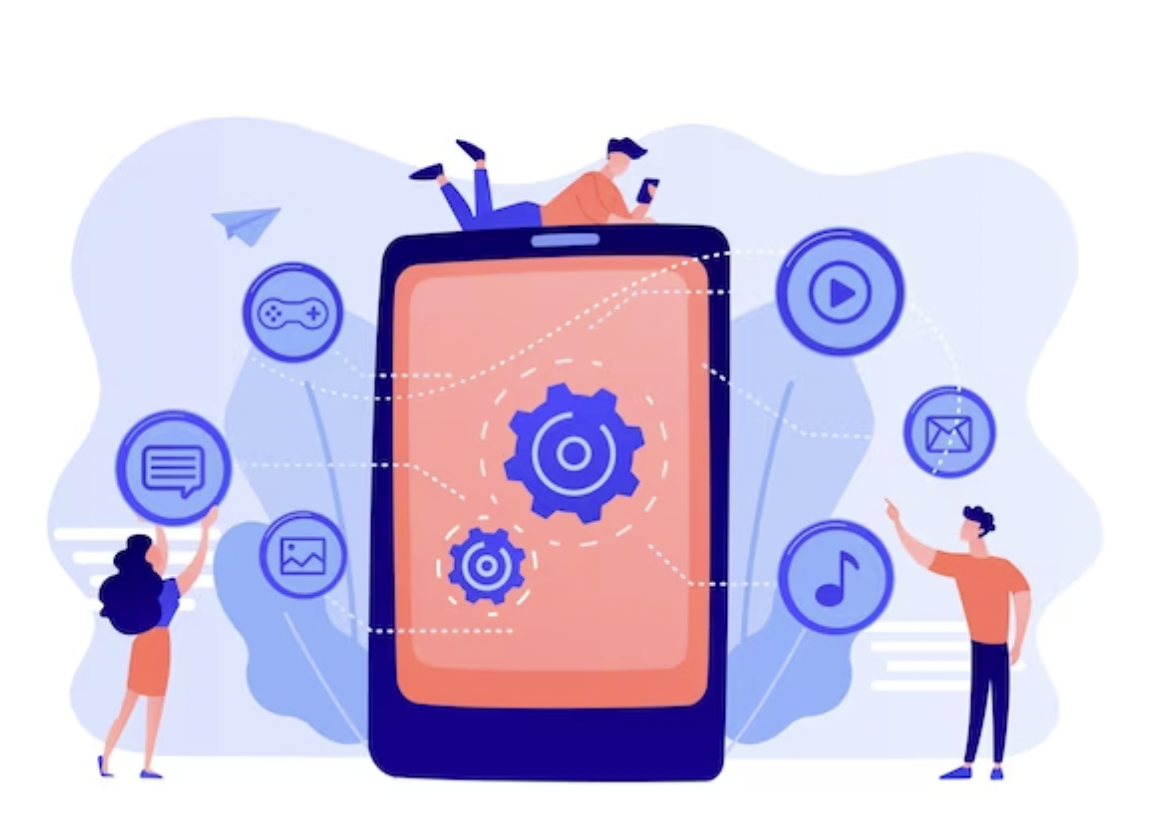Introduction
The advent of smartphones with a rapid influx of useful apps has transformed our lives in diverse ways. These apps help us organize better, communicate effectively and pretty much do everything. Now, there is a shift in trend towards “intelligent” apps.
I-Apps or intelligent apps are applications which use real-time and historical data to make relevant predictions and deliver adaptive experiences. For this, they use various technologies such as Machine Learning (ML), Big Data Analytics, Natural Language Processing (NLP) and Deep Learning.
According to Data Bridge Market Research analyses, the I-App market was valued at USD 30.91 billion in 2022. It is expected to reach the value of USD 283.18 billion by 2030, at a CAGR of 31.90% during the forecast period, which shows how important this development is.
Characteristics of I-Apps
Highly Contextual and Appropriate: I-Apps are great because they can adjust based on their user’s actions. They use the whole range of a device’s capabilities to study, predict, and make relevant ideas and tips.
Data-driven: I-Apps are based on data. They collect user data from various sources, such as IoT devices and user encounters. Then they use big data analytics to generate relevant insights.
Action-oriented: I-Apps take some decisions on their own level. For example, they will weed out options from a list that they do not find useful. Thus they make the decision-making process for the user more quick and efficient.
Omnichannel PWAs: Today’s user expects to have the same experience, whether interacting with a web app or native app. Omnichannel Progressive Web Apps ensure that they get the same experience on all communication channels.
Adaptable: I-Apps are adaptive in nature. Being based on Machine Learning algorithms, they upgrade their behavior and thus don’t need to be programmed from fundamentals.
Predictive Analytics: This is the process of analyzing data to understand the user and generating insights for the future. A good I-App, learns from the past, and makes relevant suggestions useful to the user.
Security and Privacy: With so much sharing of data, security and privacy are important. Data should be encrypted while it is being sent and while it is being stored. Access control systems should ensure that only the users themselves can see their private data.
Customization: Users should be able to pick and choose the features they want to be operating. Customizing the app according to their taste, promotes general happiness of the user.
Examples of I-Apps
Alexa, Google Assistant and Siri: These apps seamlessly combine machine learning and natural language processing to make your everyday simple tasks convenient. They are capable of giving you weather and traffic updates, coordinate meetings, adjust smart LEDs, tell you a joke and play your favorite music and much more.
English Language Speech Assistant (ELSA): This app helps you work on your English speaking skills by focusing on the right accent and pronunciations. It uses speech recognition technology to understand your native language and teaches you how to speak English the right way.
Ada Health: This ‘doctor-in-your-pocket’ app runs on AI. It has a conversational interface that asks you simple and relevant questions to understand your health conditions and then searches for the most suitable care available.
Seeing AI: This app is basically a talking camera for the visually-impaired. It has computer vision that narrates the visual world by reading out documents and short texts. It can also identify color, currencies, handwriting, age, gender, emotion, light and images in other apps.
OTT platforms like Netflix and Prime Video: These platforms are powered by Big Data and use implicit and explicit information to make recommendations over time.
Grammarly: This app reads writing in real-time and gives you a lot of ideas for improvements. It helps you to find and fix grammar mistakes, gives style advice, improves word use, and checks written material’s general tone and readability.
Conclusion
Apps infused with AI and smart tools are touching all areas of our lives – Media, Technology, Healthcare, Finance, Lifestyle etc. With their numerous features, the emergence of intelligent apps is revolutionizing the way we work. They are enhancing our efficiency, accelerating decision making process, gathering better insights, and thus, delivering long-term benefits.
Image Sourced from Freepik
